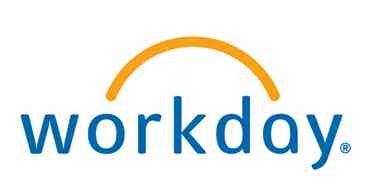Workday Inc (NYSE:WDAY) reported earnings that exceeded expectations on Aug. 27, with revenue growth of 72% year over year. Despite this strong performance, its stock traded lower, suggesting its impressive run may have hit a rough level of resistance. But does this mean that all enterprise-software companies are a sell?
What’s up with Workday?
For Workday Inc (NYSE:WDAY)’s second quarter, the company posted top-line growth of more than 70% on revenue of $107.6 million — $7 million better than consensus — and an EPS loss of $0.13, or $0.05 better than consensus.

In addition, its Q3 revenue guidance of $116.5 million is $1 million better than expectations, and its full-year estimate of $441 million is also above the consensus. For a company whose value is determined by revenue growth, the quarter should have looked solid to many.
One of the major metrics of interest for Workday Inc (NYSE:WDAY) is its rate of subscription growth. The company offers services similar to an HR department but through the cloud. Investors believe this model holds a lot of promise as companies embrace the higher technology.
Investors want to see that subscribers are growing faster than revenue, an indicator of stronger future revenue. Subscriptions make up 75% of the company’s revenue, and in this quarter, they were up 92% over last year.
Why did Workday trade lower?
With great subscription growth and better-than-expected revenue and guidance, why did Workday Inc (NYSE:WDAY) trade lower by almost 2%? The answer lies in valuation.
Up until this point, investors have simply bought Workday Inc (NYSE:WDAY) with absolutely zero regard for its market capitalization. The $12 billion company has created $353 million over the last 12 months, thus trading at 35 times sales.
If we look further down the road, Workday is still expensive at 29 times its full-year sales guidance. Apparently, this valuation is the level at which investors no longer believe Workday is worth buying, seeing as how the stock fell after its best quarter yet.
Is there value elsewhere?
Workday is expensive, but it’s not alone in the enterprise-software space. For some reason, investors believe that these new services through the cloud can replace the use of older technology.
So far, investors have been right, as enterprise-software companies have grown at a rate that far exceeds GDP. And while Workday may have reached a point of consolidation, or where its stock simply will not become more expensive, there are a few names that might still be attractive.
The first is Cornerstone OnDemand, Inc. (NASDAQ:CSOD), a company that provides talent management on the cloud via recruiting, learning, performance, and outreach. During its last quarter, sales grew 66% year-over-year, but looking ahead, the company is expecting top-line growth of 56% this year.
In comparison, Workday is expecting revenue growth of 60% this year. The difference is that Cornerstone OnDemand, Inc. (NASDAQ:CSOD) trades at 17 times its last 12 months of sales, and is expecting positive cash flow of $18 million this year. While Workday is growing slightly faster, I like the stock that’s nearly 50% cheaper.
Aspen Technology, Inc. (NASDAQ:AZPN) doesn’t gain a lot of attention, but its services make training, presenting, and software integration easier in complicated industries such as energy, chemicals, and engineering.
The company doesn’t have the growth that we see in Cornerstone OnDemand, Inc. (NASDAQ:CSOD) and Workday – currently growing at 30% year-over-year – but is profitable with operating margins of 17.8 %. Moreover, the stock is significantly cheaper than other enterprise- software companies, trading at 10 times sales. With that said, because of its growth and stability, I think investors have to give Aspen Technology, Inc. (NASDAQ:AZPN) a look.
Lastly, no enterprise software conversation is complete without discussing the industry leader, Salesforce.com (NYSE:CRM). Yet, despite having 10 times more revenue that Workday, Salesforce.com (NYSE:CRM)’s market capitalization is just two times larger.





